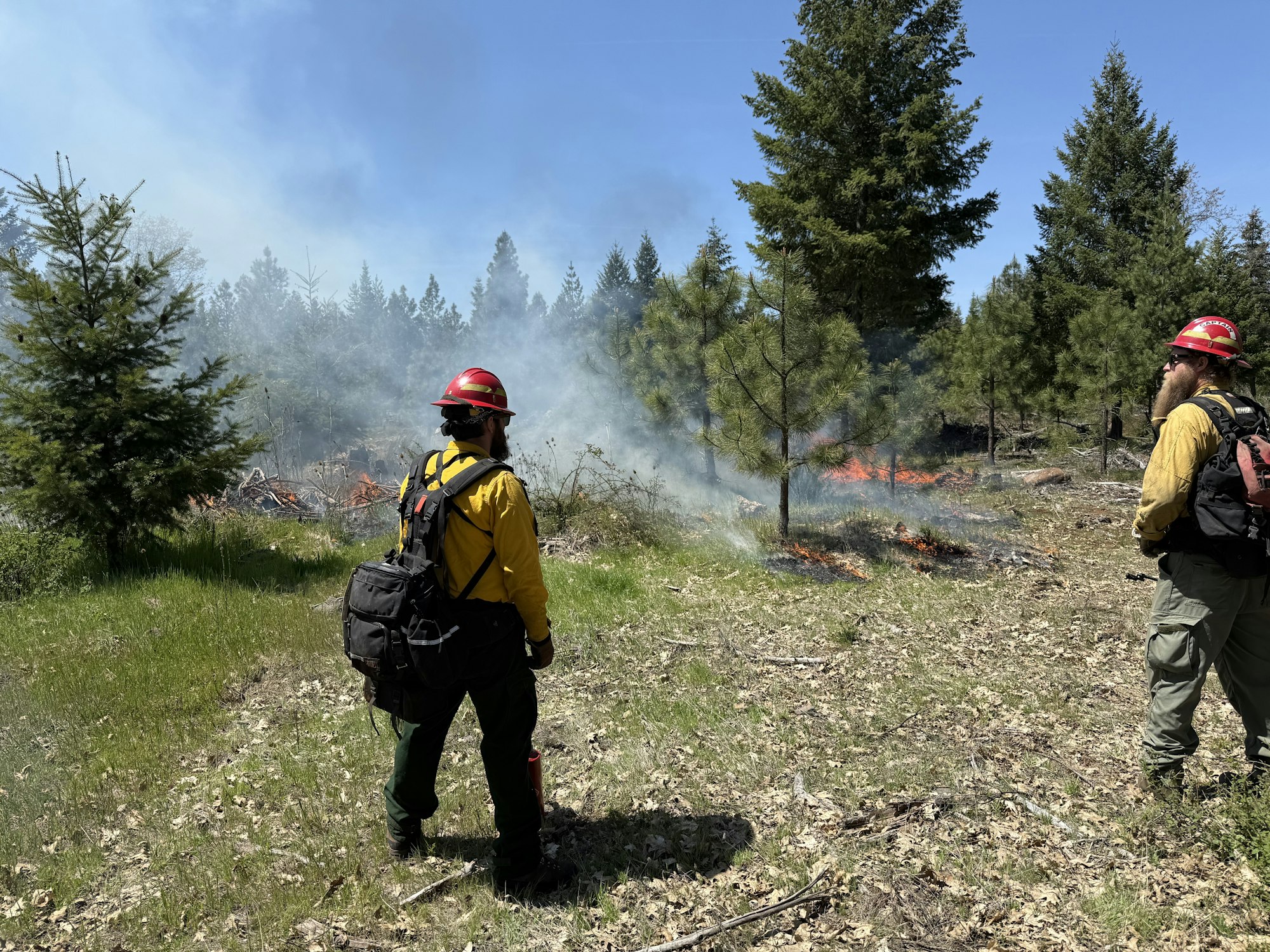Western Oregon Cascades Recovery Effort
Western Oregon Cascades Recovery Effort
Climate-Smart Reforestation and Recovery Assistance (RCPP)
Location: South Obenchain Fire footprint
Partners: Sustainable Northwest, NRCS, Western Oregon Cascadia Recovery Effort (WOCRE)
As part of a statewide partnership led by Sustainable Northwest, Jackson Soil and Water Conservation District is leading local post-fire forest restoration efforts within the South Obenchain Fire footprint. This project is part of a larger Regional Conservation Partnership Program (RCPP) initiative aimed at helping private forest landowners in the Western Cascades recover from the 2020 Labor Day fires.

Project Goals:
- Restore forest health on fire-impacted private woodlands
- Reduce fuel loads and wildfire risk
- Support climate-smart reforestation
- Improve erosion control and wildlife habitat
- Streamline forest management planning, seedling sourcing, and restoration contracting
Our Role in the South Obenchain Fire Area:
JSWCD is coordinating landowner outreach, forest treatment planning, and on-the-ground restoration work. Our outreach addressed a backlog of interest from landowners needing post-fire support. We are also integrating resources from other funding streams, including Oregon Department of Forestry disaster recovery funds and our own CAP Forestry funding, to expand our capacity and impact.

Project Status: Implementation work has been completed on ~260 acres of private non-industrial lands, covering treatments to reduce standing dead (fire-killed trees), prune/culture madrone, oak and ceanothus resprout, and hand pile that material for burning next winter. Throughout the summer, JSWCD staff will continue with planning for the next phases of the project for current participating landowners. We are also actively working with SNW to determine the availability of funds for a second cohort of landowners. Monitoring: Following NRCS inventory protocol for pre- and post-treatment stand attributes, fuel models, and predicted fire behavior
Monitoring:
We’re using NRCS protocols to track pre- and post-treatment forest conditions, fuel levels, and potential fire behavior—helping us measure outcomes and adapt as needed.
